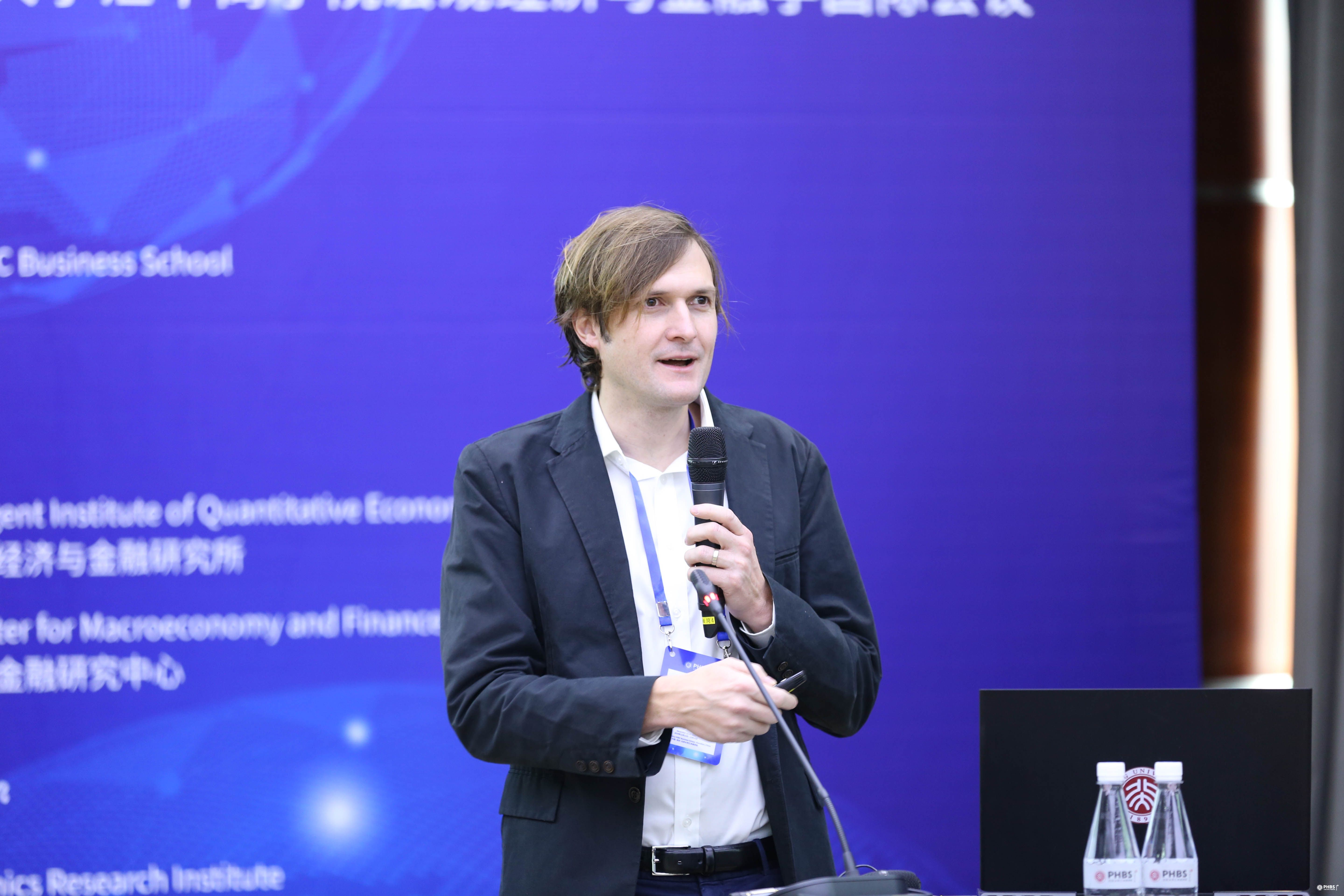The Second PHBS Workshop in Macroeconomics and Finance was held at Peking University HSBC Business School (PHBS), Shenzhen, from December 13-15. With support from the Ping An Macroeconomics Research Institute, the event was jointly sponsored and organized by PHBS, the Sargent Institute of Quantitative Economics and Finance (SIQEF), and the Center for Macroeconomy and Finance (CMF) of Peking University.
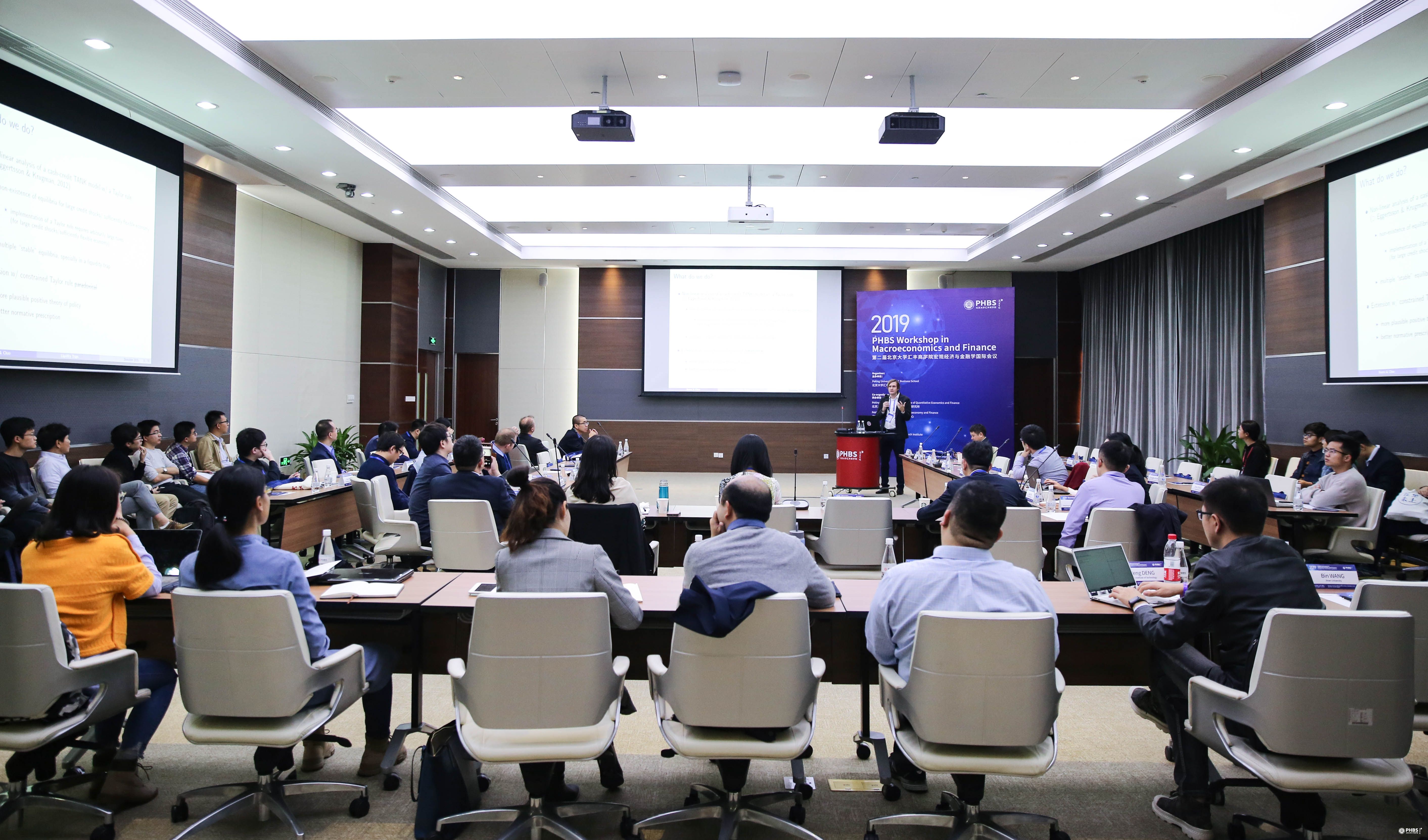
Participants at the workshop
The three-day workshop attracted more than 40 scholars worldwide to present papers and discuss topics related to macroeconomics and financial economics, as well as the various fields of liquidity, corporate finance, finance and macro economy, trade and capital flow, and theory. In his opening remarks, PHBS Associate Dean Wang Pengfei emphasized the event’s aim to facilitate international dialogue and research among scholars and universities.
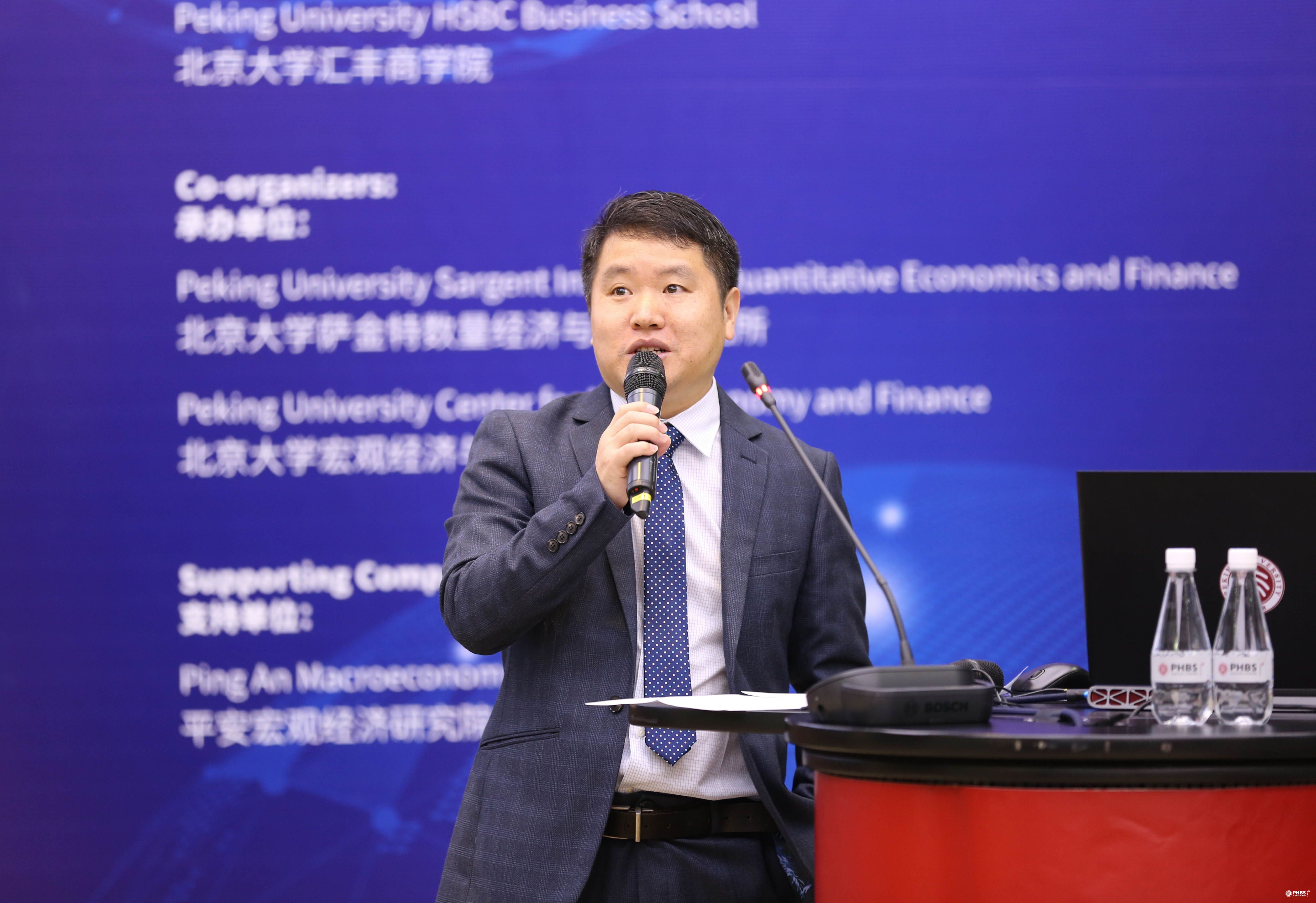
PHBS Associate Dean Wang Pengfei delivers opening remarks
Following are a summary of presentations and discussions:
Francisco Buera, Professor of Washington University at St Louis, deputy editor of Review of Economic Studies, and American Economic Journal: Macroeconomics
Professor Francisco Buera shared his research on liquidity traps in response to the question, how does the economy operate and what role does policy play in the liquidity trap? A liquidity trap arises when interest rates are low and savings rates are high, rendering monetary policy ineffective. He elaborated on how to deal with such an issue by building an effective model to analyze consumers, production and government policy.
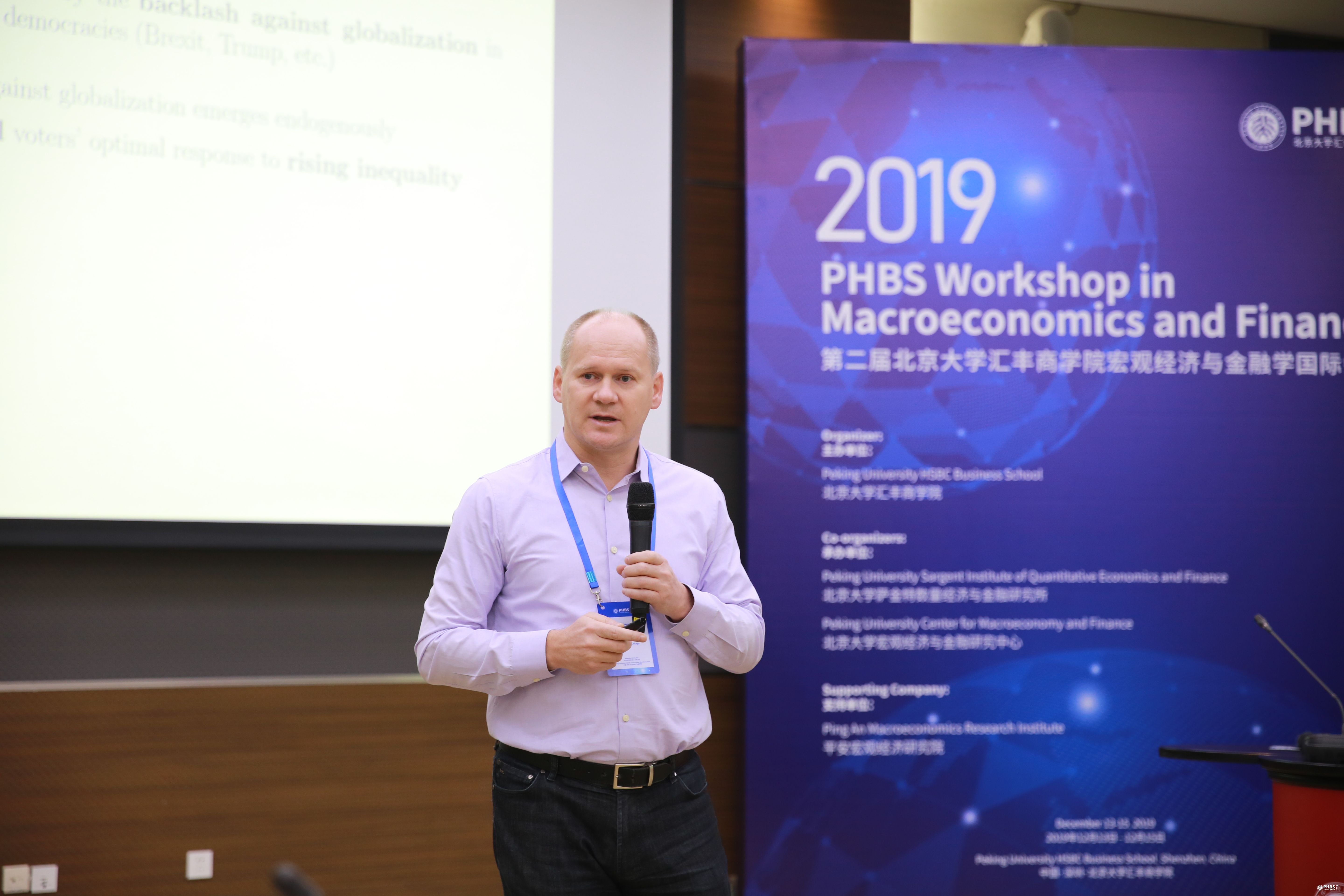
Lubos Pastor, professor of University of Chicago, deputy editor of Journal of Financial Economics
Professor Lubos Pastor presented his study on inequality aversion, populism, and the backlash against globalization. He analyzed the vote share of populist parties in recent elections and survey evidence on attitudes towards globalization, pointing out that countries with greater inequality, higher financial development and trade deficits are more vulnerable to anti-globalization backlash.
Professor Zhang Shengxing of the London School of Economics discussed the roles of public safe assets based on a theoretical model. He noted that holding cash or safe assets could increase liquidity of illiquid assets on the bank’s liability side and reduce adverse selection to a certain extent. Professor Ji Yan of Hong Kong University of Science and Technology elaborated on a DSGE model with financial frictions and found that they would lead to credit misallocation and reduced economic recovery speed after financial shocks.
In the corporate finance session, PHBS Professor Li Di presented on the effect of CEO job security on corporate policies by studying certain actual corporate decisions. Professor Yu Jianfeng of Tsinghua University discussed his empirical study on priming and stock preferences by conducting a natural experiment based on Chinese stock market data. PHBS Professor Ma Linlin explored the compensation of mutual fund managers, finding that compensation based on peer-benchmarked performance either generates greater managerial effort or attracts higher skilled managers.
Professor Stavros Panageas of the University of California at Los Angelas presented “Finance in a Time of Disruptive Growth.” He developed a theory to understand financial trends and analyzed the relative expected returns. Professor Chen Hui of MIT discussed the effect of competition-distress feedback, as firms tend to compete on prices more fiercely when they are in financial distress.
Professor Vincenzo Quadrini at the University of Southern California, studied the impact of industrialized countries' monetary policy on emerging economies. He concluded that the low-interest rates policy in industrialized countries have negative impacts on emerging economies. Professor Fang Xiang, at the University of Hong Kong, explained the causes of risk premium in currency carry trade, showing that countries with low interest rates do have high bank leverage and low monetary returns. PHBS professor Li Zhimin presented his research on structural transformation in China, showing that reductions in migration croosts play a crucial role in how productivity and trade shocks affect labor reallocation across sectors.
The workshop ended with a focus on theory. Professor Marek Weretka from the University of Wisconsin at Madison, examined whether two commonly used utility settings in the field of macroeconomics and microeconomic can be reconciled. Professor Huo Zhen of Yale University presented a beauty-contest models, in which two possible information regimes can arise endogenously. Professor Ernest Liu of Princeton University examined how bank market power affects credit provision under imperfect bank competition and policy variation, based on empirical analysis of 2008-2017 loan-level data from the US Small Business Administration (SBA). Professor Xuewen Liu of the University of Hong Kong studied why an inefficient credit boom could persist during financial crisis based on a rational-expectations model.
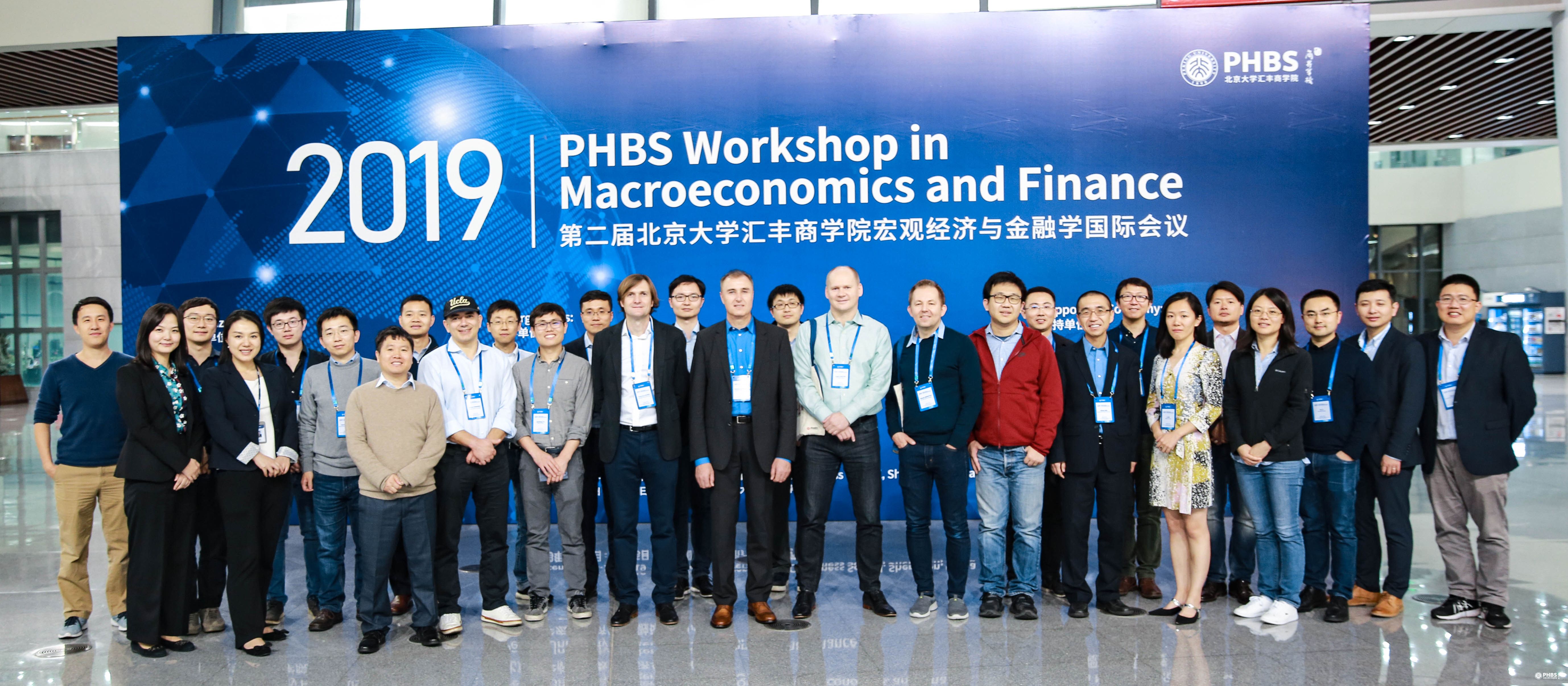
The group photo of participants
By Annie Jin
Edited by Priscilla Young







